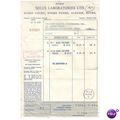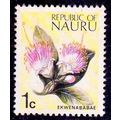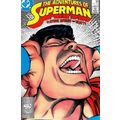South Ockendon, Essex - Church in 1820 watercolour - Thurrock museum postcard
- Condition : Used
- Dispatch : 2 Days
- Brand : None
- ID# : 107189772
- Quantity : 1 item
- Views : 3788
- Location : United Kingdom

- Seller : justthebook (+1703)
- Barcode : None
- Start : Thu 30 May 2013 20:01:55 (EDT)
- Close : Run Until Sold
- Remain : Run Until Sold
Checks/Cheques
 for 1 item(s) edit
for 1 item(s) edit
Shipping Calculator
More Listings from This Seller view all
Seller's Description
- Postcard
- Picture / Image: South Ockendon Church, 1820 from a watercolour by unknown artist
- Publisher: Thurrock Local History Museum, c.1960s or 1970s
- Postally used: no
- Stamp: n/a
- Postmark(s): n/a
- Sent to: n/a
- Notes / condition: slight album contact wear on back - nothings major
Please ask if you need any other information and I will do the best I can to answer.
------------------------------------------------
Postage & Packing:
UK (incl. IOM, CI & BFPO): 99p
Europe: £1.60
Rest of world (inc. USA etc): £2.75
No additional charges for more than one postcard. You can buy as many postcards from me as you like and you will just pay the fee above once. (If buying postcards with other things such as books, please contact or wait for invoice before paying).
Payment Methods:
UK - PayPal, Cheque (from UK bank) or postal order
Outside UK: PayPal ONLY (unless otherwise stated) please. NO non-UK currency checks or money orders (sorry).
NOTE: All postcards are sent in brand new stiffened envelopes which I have bought for the task. These are specially made to protect postcards and you may be able to re-use them. In addition there are other costs to sending so the above charge is not just for the stamp!
I will give a full refund if you are not fully satisfied with the postcard.
----------------------------------------------
Text from the free encyclopedia WIKIPEDIA may appear below to give a little background information (internal links may not work) :
*************
South Ockendon is a settlement and Church of England parish in the Thurrock borough and unitary district in Essex in the East of England, United Kingdom.
South Ockendon is an ancient parish. It was a village before the Norman Conquest and had a church by 1085.[1] It is mentioned in the Domesday Book as Wokenduna, supposedly named after a Saxon chief, Wocca, whose tribe lived on a hill.[2] The suffix ""don"" in Old English means a low hill in open country.[3] Until the late 1940s, the village centred on The Village Green, with its Norman Church facing ""The Royal Oak""[4] a 17th century tavern. North, South and West Roads all converge on The Green.[5]
In 1912, Mollands Farm to the south of the village was bought for use as a 'rehabilitation' facility for what are now termed 'disadvantaged' or 'educationally challenged' people. It gradually developed into a major mental hospital (known locally as The Colony) or as South Ockendon Psychiatric Hospital. The hospital closed about 1993 and was demolished in 1998 as an indirect result of the devastating ""South Ockendon Report"" which redefined the borders of bad management of mental patients and led to a nationwide re-appraisal of mental care in the UK. Redevelopment of the former hospital site soon followed. A major housing site comprising 688 dwellings was completed in 2000. This is known as the Brandon Groves estate.
Separately, South Ockendon village became a location for prefabricated houses (prefabs) accommodating bombed-out residents of East London/West Essex in the very late 40's. Much of the original post war construction was undertaken by former German Prisoners of war. The majority of these were demolished in the late-1960s when a sizeable Greater London Council estate, Leca plan ""concrete"" construction homes - the Flowers' Estate - was built to replace them, once more with pre-fabricated dwellings, albeit of a superior design. There were prefabs along the length of Orchard Road, originally, but they were replaced by more conventional brick houses. Current plans to rebuild a major part of South Ockendon particularly 'the Flowers Estate' are seen by local people of just another attempt to rip apart an established community.
In the 1970s The Ford Motor Company factory at Aveley housed Ford's Advanced Vehicle Operations which built cars such as the RS1600.[6] The plant was wound down gradually from the late 90's but closed entirely in 2004, when the last 150 jobs were lost. The majority of the 150 accepted transfers to other Ford or ancillery sites around Essex. The 'Aveley' plant was situated along and west of the railway line, adjacent to Ockendon station in the part of Ockendon now known as ""Belhus"".
South Ockendon's most famous resident is (claimed to be) Michael Stannard, who used to play for West Ham United wearing the number 9 shirt. Others, however, might say that Terry Venables, the original ""El Tel"", who was born Dagenham, lived in flats in Corran Way and went to Lennards School (partnered with Culverhouse) is a more enduringly famous resident than Mr Stannard.
type=printed postcards
theme=topographical: british
sub-theme=england
county/ country=essex
number of items=single
period=1945 - present
postage condition=unposted
Listing Information
| Listing Type | Gallery Listing |
| Listing ID# | 107189772 |
| Start Time | Thu 30 May 2013 20:01:55 (EDT) |
| Close Time | Run Until Sold |
| Starting Bid | Fixed Price (no bidding) |
| Item Condition | Used |
| Bids | 0 |
| Views | 3788 |
| Dispatch Time | 2 Days |
| Quantity | 1 |
| Location | United Kingdom |
| Auto Extend | No |


















